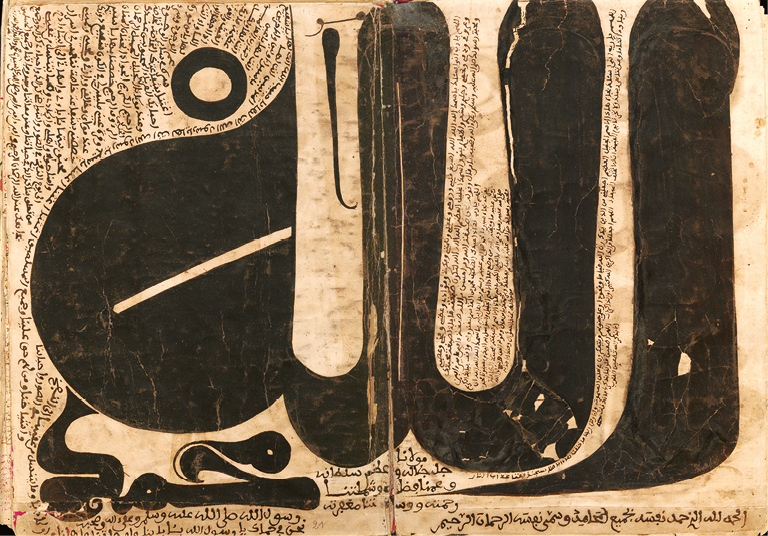
He is the Shaykh and knower of God, Abu 'Abdillah Muhammad b. al-Qasim b. Ahmad al-Qandusi al-Awsi (d. 1278 AH/1861 CE) of Kénadsa, Algeria—a master whose spiritual radiance was concealed beneath the humble appearance of a spice merchant in the markets of Fez.
Biographers speak of al-Qandusi as a man of profound humility and gentle disposition. He earned his livelihood selling medicinal herbs and healing spices, living a life of outward obscurity. Yet to those blessed with spiritual insight and unveiling (kashf), it was unmistakable: he was an 'Arif, a true knower of God, graced with wilaya (sainthood) and an intimate, living connection with the Messenger of God (peace and blessings be upon him).
Muhammad al-Fatimi b. al-Husayn al-Saqalli (d. 1311 AH/1893 CE) wrote in Wafayat al-Saqalli:
He is the blessed and righteous master, possessor of spiritual effulgence from the Holy Presence... He was one of the singular masters and possessors of spiritual succour. He would receive inspirations (waridat) and wafts of divine breezes, and would articulate a variety of spiritual allusions and expressions... Several mystical secrets and blessings were opened for him—may Allah bring benefit through him!
In 1248 AH/1832 CE, Shaykh Muhammad al-Qandusi experienced a profound spiritual redirection. He had set out alone, intending to perform Hajj and settle in the luminous city of Medina. However, upon reaching the mausoleum of Mawlay Idris II in Fez, something extraordinary occurred.
In the Shaykh's own words, preserved in manuscript nr. 1699:
I went to the resting place of Mawlay Idris II—may Allah's mercy, blessings, and peace be upon him—after traveling alone with the intention of journeying to visit Allah's Sacred House and live in Medina. But once in the presence of Moulay Idris II, my master [the Prophet, peace and blessings be upon him] permitted me to remain there in the presence of the Sultan of the People of Allah, our master Idris, in order to serve him for the sake of Allah. After receiving permission to remain there, my master promised me that my original objective would be met and that I would be given everything conferred upon one who sets out for Hajj and resides in Medina near the Noble Resting Place; all of that was stored up for me in the presence of my master! I complied with the command given to me and soon after that I was given permission to marry and then to sell herbs in the Suq al-'Ashshabin.
This was not a change of plans—it was a divine appointment. The Prophet (peace and blessings be upon him) himself redirected the Shaykh's journey, promising him the spiritual rewards of Hajj and residence in Medina while physically remaining in service to the blessed sanctuary of Mawlay Idris II. Here we witness the reality of spiritual presence transcending physical location—a fundamental principle in energy healing and mystical realization.
Shaykh al-Qandusi possessed a unique spiritual gift: the ability to channel divine energy through sacred calligraphy. His focus was on inscribing verses of the Quran and the testimony of faith with sublime, mystical artistry, then placing these blessed writings in the mausoleums of the righteous as sources of baraka (spiritual blessing) and healing.
His most celebrated work of sacred art was the Majestic Name "Allah" (اللّٰه) written in a transcendent calligraphic style, which was hung at the mausoleum of Mawlay Idris II in Fez. This blessed inscription remained there for nearly a century, radiating spiritual energy to all who entered the sacred space.
The Shaykh also wrote an entire Quran (Mushaf) in an ornate and mystical calligraphic style spanning twelve monumental volumes, each approximately one meter in height. Completed on Shawwal 30, 1266 AH/1850 CE, this masterwork was described as "unrivalled by anything else in the world." Each letter was inscribed as a vessel of divine light, each word a portal to healing presence.
There is profound wisdom in the fact that Shaykh al-Qandusi worked as a seller of medicinal herbs and spices. This was not merely his livelihood—it was an extension of his spiritual mission. In the Islamic healing tradition, herbs and natural remedies are recognised as vessels of divine healing power, and the Shaykh understood the connection between physical healing substances and spiritual energy intimately.
He would teach disciples and students in his shop in the spice market, where seekers would come not only for physical medicines but for spiritual counsel and divine remedies for the ailments of the heart and soul. His shop became a sanctuary—a place where the veils between the material and spiritual worlds grew thin.
What distinguished Shaykh al-Qandusi was his direct, wakeful connection with the Prophet Muhammad ﷺ. He received waridat (spiritual inspirations and transmissions) directly from the Prophetic presence, both in dreams and in waking visions.
One such transmission occurred inside the Qarawiyyin Mosque, where the Prophet (peace and blessings be upon him) taught him the prayer:
اللهم صل على النور الساطع الذاتي الكامل الساري سره في الوجود
"O Allah, send prayers upon the radiant, perfect, and essential light whose secret permeates all of existence."
The Shaykh later wrote a commentary on this prayer titled Al-Nur al-Sati' fi al-'Ilm al-Nafi' (The Resplendent Light in Beneficial Knowledge), explaining the metaphysics of divine light flowing through all creation—a foundational principle for understanding spiritual healing and energy work.
Perhaps Shaykh al-Qandusi's most important teaching for spiritual healers and energy workers is his emphasis on salawat (prayers upon the Prophet (peace and blessings be upon him)) as the supreme healing practice for the latter age.
In his work Al-Salat al-Waqiya min al-Ahwal al-Zulmaniyya (The Prayer that Delivers from Dark States), completed in 1274 AH/1857 CE, the Shaykh explained that in the latter age of spiritual dissolution, when traditional methods of spiritual work lose their effectiveness, prayers upon the Prophet (peace and blessings be upon him) become "the Elixir" that restores balance and provides protection.
He wrote:
Prayers upon the Prophet (peace and blessings be upon him) will become the Elixir in the latter age when all other means of spiritual refinement will fade into oblivion except for his means, for he is the sun that will never set until the Day of Resurrection. One of the secrets of Allah's wisdom is that a sick person should neither be given strong medicines nor rich foods; rather, a physician should prescribe him gentle-acting medicines and gentle foods until he regains his health and is able to eat rich foods. It is the same with regard to religion: it has become weak and sickly in this latter age; therefore, it can only be remedied by patience and nourished with prayers upon the Prophet (peace and blessings be upon him), as they contain the secret for re-establishing equilibrium. As for the lights of other forms of remembrance, their food is too powerful, and the medicines of spiritual struggle are also too strong. Understand this!
This teaching is profound for energy healers: salawat acts as a gentle, restorative medicine that recalibrates the spiritual system without overwhelming it. It is the accessible healing modality for our time.
Though Shaykh al-Qandusi taught quietly in his shop and private settings, he transmitted his secrets to select disciples who would carry his light forward. Two known spiritual heirs preserved and transmitted his teachings:
The primary heir and spiritual successor of Shaykh al-Qandusi, Shaykh Muhammad b. 'Abd al-Wahid was authorized as a Shaykh of spiritual wayfaring and founded the Kattani-Ahmadi order and the Kattani Zawiya in Fez. He authored over forty books on spiritual realization and Muhammadan metaphysics, and established a center where the common folk and elite alike could receive the litanies, invocations, and healing practices transmitted from Shaykh al-Qandusi.
Shaykh Muhammad b. al-Mukhtar al-Tashfini described him as "the marvel of the age," noting that "he does not quote anyone, only verses from the Quran or Prophetic traditions"—a testament to the purity of his direct inspiration.
A poet and official in Fez, al-Sanhaji collected Shaykh al-Qandusi's letters of spiritual counsel in al-Fath al-Quddusi fima Fada bihi Sayyidi Muhammad al-Qandusi (The Holy Opening Concerning the Outpourings of My Master Muhammad al-Qandusi), preserving the Shaykh's wisdom for future generations.
Shaykh al-Qandusi began writing on the 14th of Ramadan, 1244 AH/1829 CE, and produced a remarkable collection of works on spiritual healing, metaphysics, and Muhammadan realities. His writings are treasures for energy healers and spiritual practitioners:
Completed in 1254 AH/1839 CE, this beloved work—affectionately known as The Drink—is a concentrated elixir of prayers upon the Prophet (peace and blessings be upon him) designed to quench the spiritual thirst of seekers and provide healing nourishment to the soul.
The full title is al-Ta'sis fi Masawi al-Dunya wa Mahawi Iblis (Laying the Foundation for the Ills of the Lower World and the Abysmal Traps of Satan), completed in Dhu al-Qa'da, 1253 AH/1838 CE. Widely regarded as his magnum opus, this multifaceted masterwork defies simple classification. It addresses metaphysics, spiritual alchemy, human desires, self-discipline, child rearing, sacred anatomy, medicine, invocation, domestic life, relationships, and protection from spiritual darkness.
The full title is Nubdha al-Bawariq al-Ahmadiyya fi al-Haraka wa al-Sukuniyya min al-Haqiqa al-Muhammadiyya (A Fraction of Ahmadan Flashes in Movement and Stillness from the Muhammadan Reality), completed on Rabi' al-Awwal 29, 1270 AH/1854 CE. This dense and luminous text explores the metacosmic reality of the Prophet Muhammad (peace and blessings be upon him) and his relationship to the macrocosm and microcosm. The Shaykh explains how believers should relate to the Prophetic reality at all stages of the spiritual journey, particularly within the postures of the ritual prayer (salat)—revealing how each movement in prayer is a healing practice that aligns the subtle energy body with divine light.
The full title is Zubdat al-Mahbub al-Mamkhuda min Labani 'Ilm al-Ghuyub (The Cream of the Beloved from the Milk of Unseen Knowledge), completed on Rabi' al-Awwal 1, 1270 AH/1853 CE. Through profound discussion of Muhammadan Metaphysics, the Shaykh explains how one gains "knowledge of self" and describes the interrelatedness of the sacred and mundane—essential understanding for holistic spiritual healing.
Shaykh al-Qandusi wrote extensively on Allah's Beautiful Names as sources of healing and transformation, including:
The greatest lesson Shaykh al-Qandusi offers spiritual healers is the power of humility and hiddenness. He was content to appear as an ordinary merchant, a family man selling herbs in the marketplace. He did not seek recognition, public acclaim, or large followings. Yet his spiritual influence has echoed across centuries.
This is the paradox of true spiritual power: the more hidden the saint, the more potent the healing. The Shaykh embodied the principle that baraka (blessing) flows most powerfully through vessels purified of ego and worldly attachment.
Shaykh Muhammad b. al-Qasim al-Qandusi passed from this world on Saturday, the twelfth of Jumada al-Ula, 1278 AH/1861 CE. He is buried outside of Bab al-Futuh in Fez, Morocco, in an unmarked grave behind the Rawdat al-'Ulama sepulchre, in the plot called Rawdat Awlad Siraj.
Even his burial place reflects his spiritual teaching: no grand monument, no ornate tomb—just a simple, unmarked resting place. Yet for those with spiritual vision, his light continues to shine, and his baraka continues to flow to all who connect with him through love of the Prophet (peace and blessings be upon him) and sincere practice of salawat.
Shaykh al-Qandusi's life and teachings offer profound guidance for contemporary energy healers and spiritual practitioners:
May God have mercy upon Shaykh Muhammad al-Qandusi and reward him on behalf of all who benefit from his secrets. May his teachings continue to illuminate the path of healing and spiritual realisation for seekers of our age. Amin.
For those called to explore the Shaykh's teachings further, his works remain preserved in libraries in Morocco, awaiting those with sincere intention to unlock their healing secrets. Begin with abundant salawat, and the doors will open.
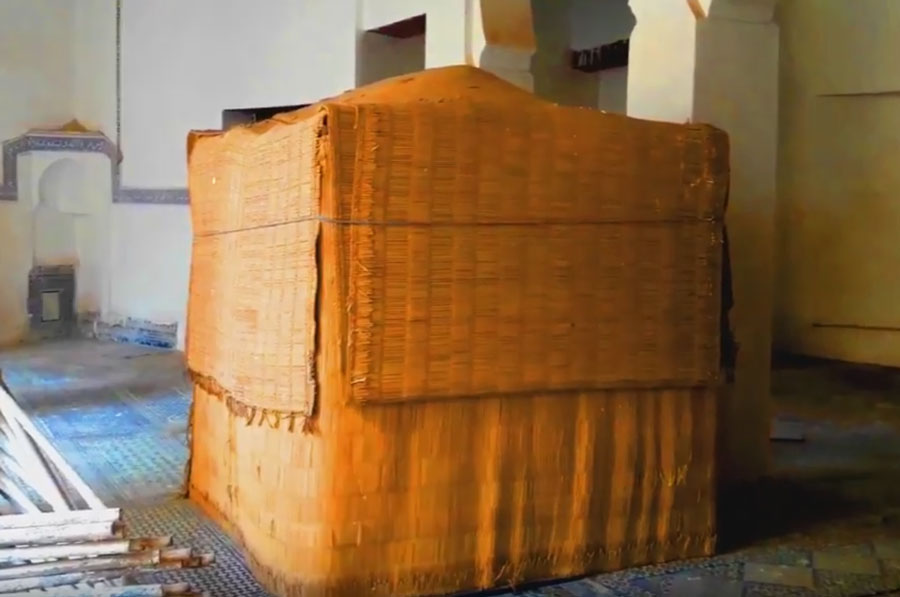
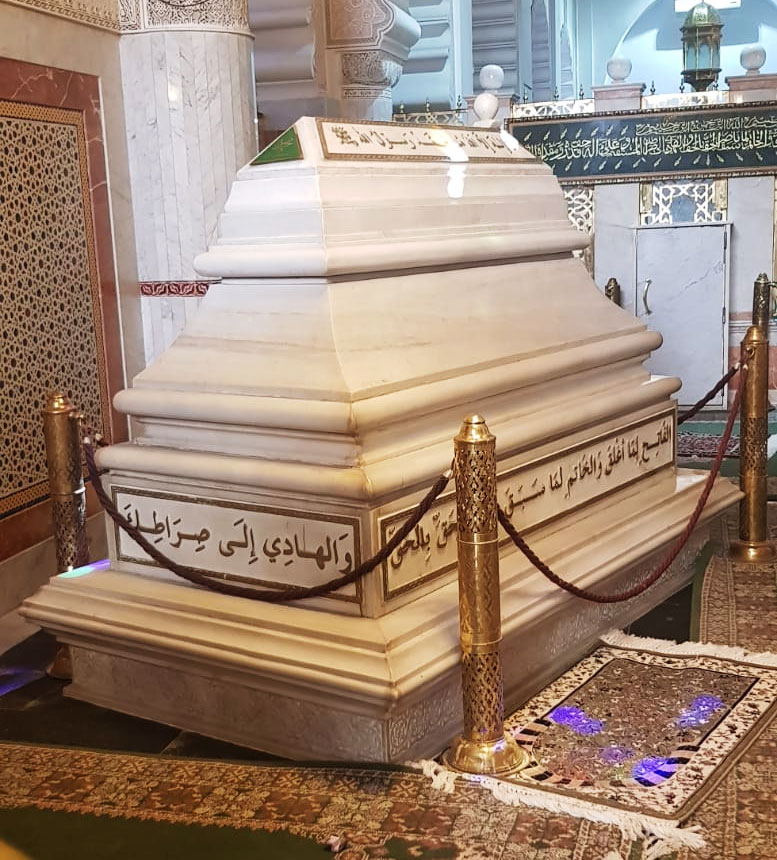


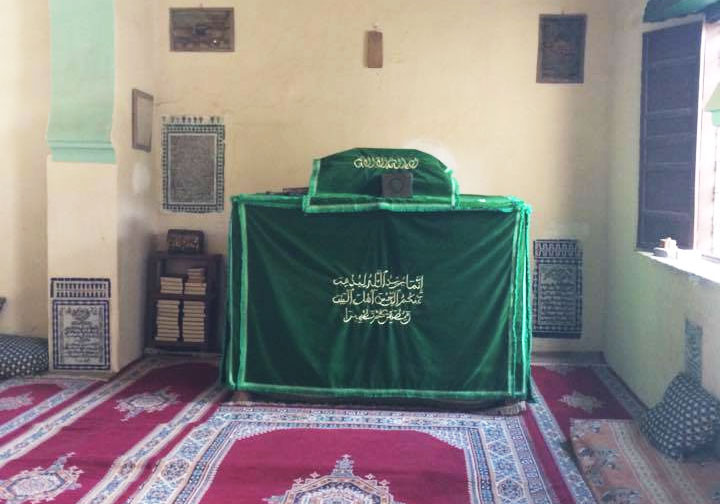

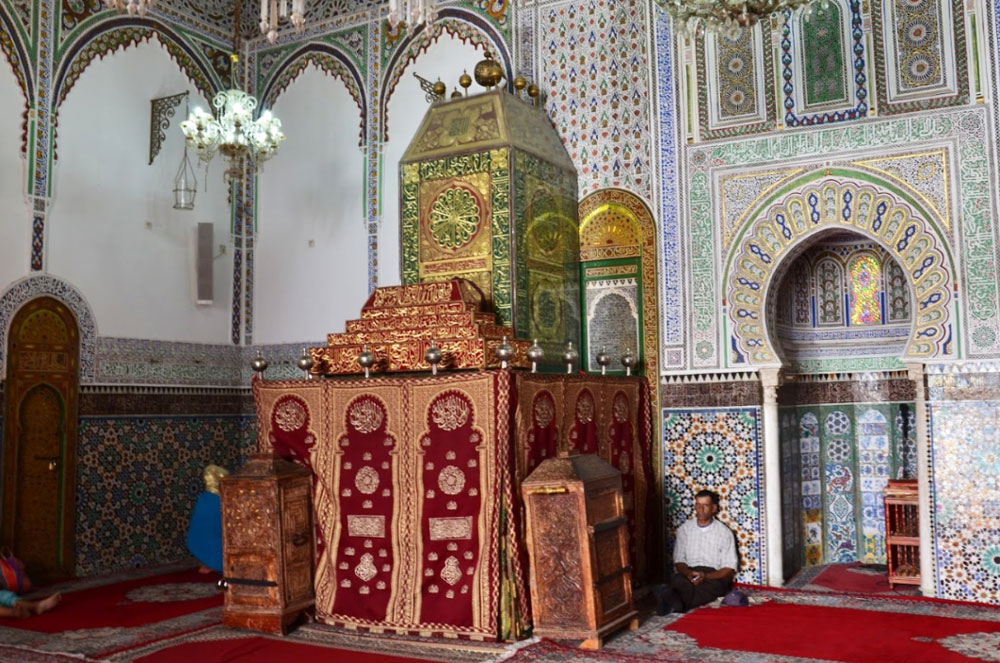
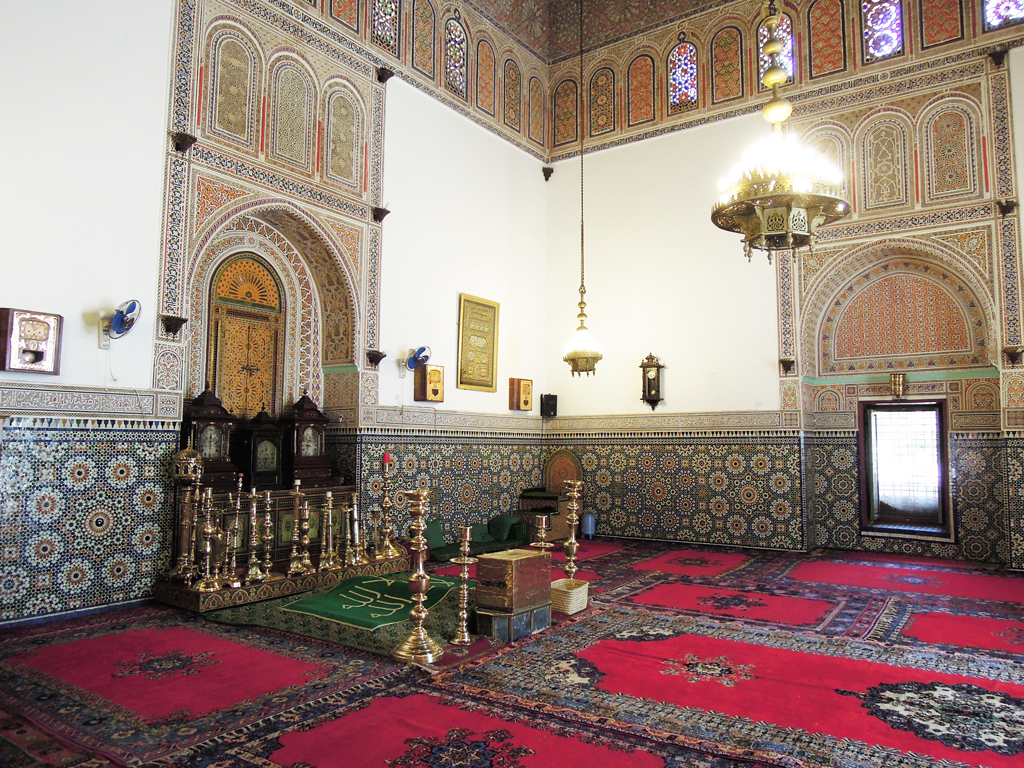





























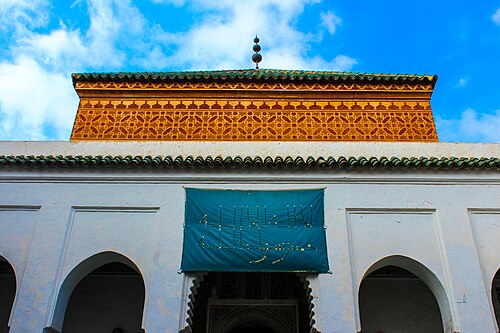
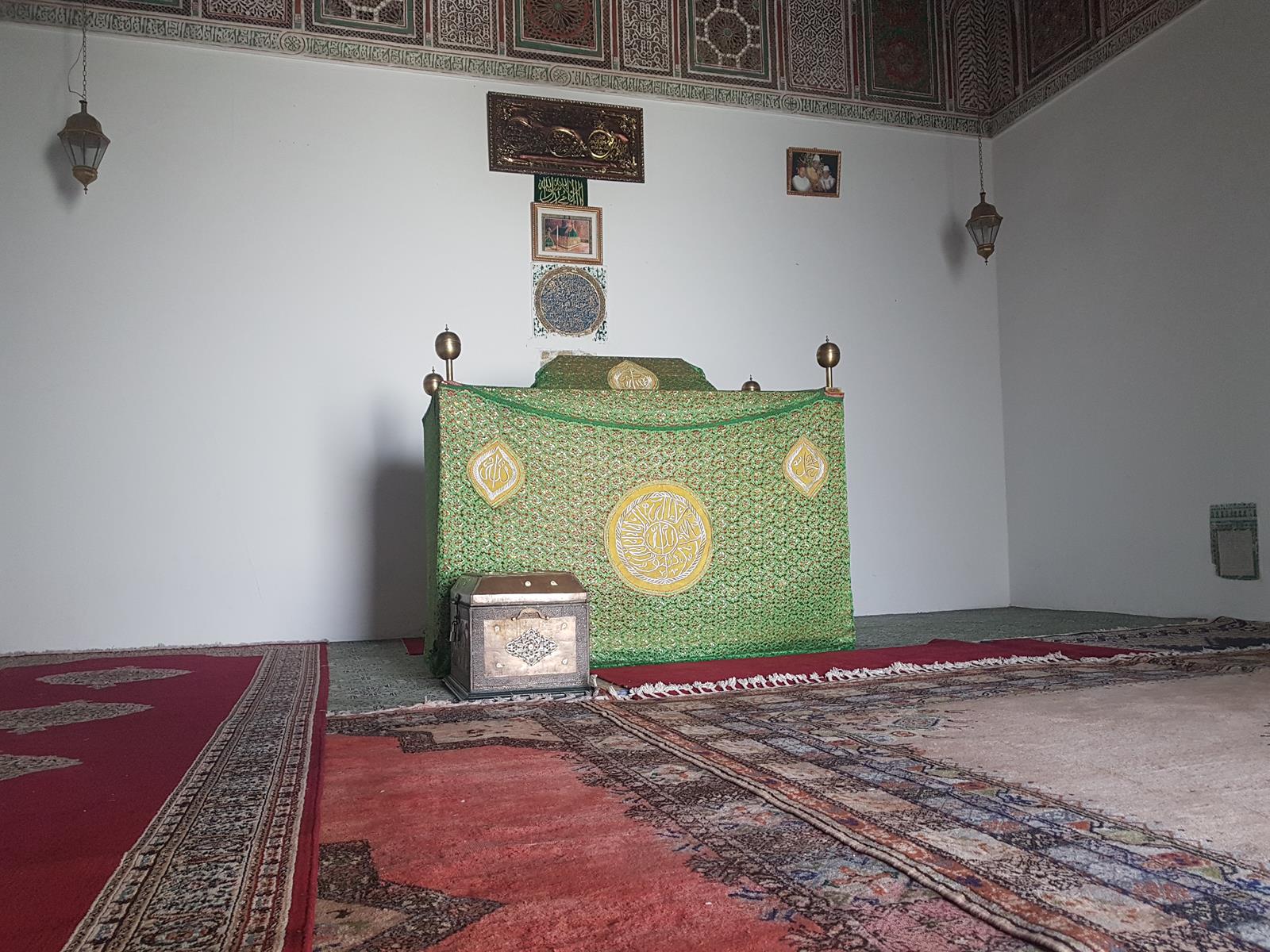




Find all our meditations on the Nur App!
Experience tranquillity through Qur'anic recitations and meditations on our Nur App and develop healthy spiritual routines to maintain your God-given Nur (light).
